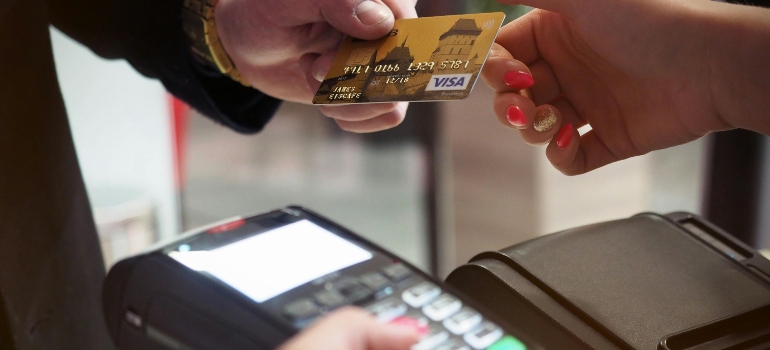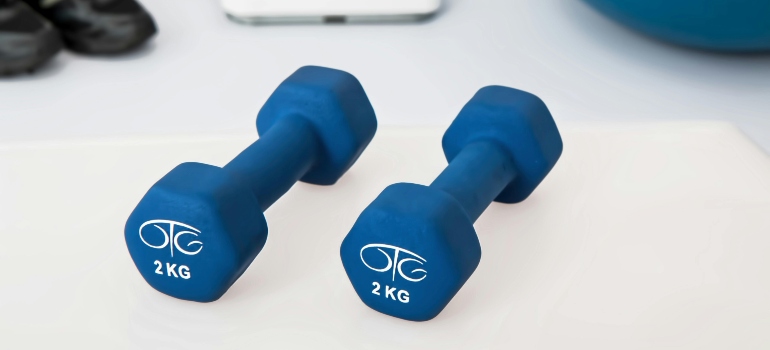Money matters can often pose significant challenges on the road to addiction recovery. From financing quality rehab programs to managing day-to-day expenses, financial concerns can loom large for individuals seeking to break free from addiction’s grip. Unfortunately, the cost of substance abuse treatment WV offers can sometimes deter people from accessing the care they desperately need, leading to prolonged struggles with addiction. However, there are effective ways that can help individuals and their loved ones navigate the financial obstacles that may arise during the recovery process. Therefore, we’ll explore some practical strategies for handling money in addiction recovery, ensuring that finances don’t stand in the way of a healthier, happier future.
1. Create a Budget
Creating a budget tailored to your income, expenses, and financial goals is crucial during addiction recovery. Firstly, it helps you see exactly where your money is going and how much you have coming in. With a budget in place, you can set clear limits on how much you can spend on different categories like groceries, transportation, and entertainment. This prevents overspending and helps you stay on track with your financial goals. Also, when you’re in recovery, it’s crucial to prioritize your financial obligations, such as rent, bills, and debt payments. A budget helps you allocate your money wisely.

Here are some tips on how to create a budget for handling money in addiction recovery:
- Track your expenses: Start by tracking all your expenses for a month. This includes everything from rent and utilities to coffee runs and impulse purchases.
- Identify your income: Write down all sources of income, including wages, benefits, and any financial assistance you receive.
- Set financial goals: Whether it’s paying off debt, saving for emergencies, or building a nest egg for the future, set clear financial goals that align with your recovery journey
- Allocate your money wisely: Once you know your income and expenses, allocate your money to different categories based on priority.
- Adjust as needed: Your budget isn’t set in stone. Life changes, and so should your budget. Regularly review your expenses and income to ensure your budget reflects your current financial situation.
2. Identify Triggers and Temptations
Knowing how to handle money during rehab includes identifying triggers and temptations during addiction recovery, including those related to finances. These triggers can arise unexpectedly and jeopardize both your sobriety and financial stability. Financial triggers during recovery can take various forms, such as impulsive spending, peer pressure to splurge, or using money to cope with stress or emotions. These triggers may stem from past habits or associations with substance abuse, making them particularly potent.
To manage financial triggers effectively, start by increasing self-awareness. Take note of situations, emotions, or thoughts that prompt impulsive spending or risky financial behavior. Next, develop healthy coping mechanisms to deal with triggers when they arise. Instead of turning to spending as a form of escape or comfort, explore alternative ways to cope, such as exercise, meditation, or holistic therapy for addiction.
3. Establish Financial Goals
Setting financial goals, both short-term and long-term, is essential for handling money in addiction recovery. Having clear financial goals provides direction and purpose to your recovery journey. Short-term goals are achievable within a relatively short period, such as paying off a small debt or building an emergency fund. Long-term goals, on the other hand, require more time and planning, such as buying a home or saving for retirement. Setting these goals helps you stay focused and motivated, giving you something concrete to work towards.

To set financial goals:
- Identify your priorities: Determine what matters most to you financially. Do you want to become debt-free, pay for individual therapy for addiction, save for a vacation, or invest in retirement?
- Make them specific and measurable: Instead of vague goals like “save money,” make your goals specific and measurable. For example, “save $500 for an emergency fund by the end of the year.”
- Break them down: Large goals can feel overwhelming, so break them down into smaller, manageable steps.
- Create a plan: Once you’ve set your goals, create a plan to achieve them. This may involve budgeting, cutting expenses, increasing income, or seeking professional advice.
4. Seek Financial Support
Seeking financial support during addiction recovery can be crucial for overcoming challenges and barriers. Here are some resources and advice to consider:
- Government assistance programs: Many governments offer financial assistance programs for individuals facing addiction recovery. These programs may include unemployment benefits, food assistance, housing assistance, and healthcare subsidies.
- Nonprofit organizations: Several nonprofit organizations specialize in providing financial assistance and resources to individuals in rehabs in WV. These organizations may offer grants, scholarships, or financial counseling services.
- Support groups: Joining support groups for individuals in addiction recovery can be beneficial not only for your emotional well-being but also for accessing financial resources and advice. Fellow members may have valuable insights or connections to resources that can help you address your financial struggles.
- Financial counseling services: Consider seeking the assistance of a financial counselor or advisor who specializes in working with individuals in addiction recovery.
- Employment and job training programs: Securing stable employment is key to financial stability. Look for employment programs or job training opportunities that can help you acquire new skills, find job opportunities, and increase your earning potential.
5. Develop Healthy Spending Habits
Knowing how to deal with money during rehab involves developing healthy spending habits. When in recovery, such as drug rehab for young adults, it’s essential to recognize the role that spending habits can play in triggering old behaviors or exacerbating financial stress. Impulsive or excessive spending can lead to financial strain, making it harder to stay on track with recovery goals.

Developing healthy spending habits will help you learn to manage your finances responsibly and avoid falling back into destructive patterns. This involves setting clear priorities, distinguishing between needs and wants, and being mindful of how money is allocated. Healthy spending habits also promote self-care and well-being. Instead of seeking temporary relief through retail therapy or excessive spending, you can find healthier ways to cope with stress and manage emotions.
6. Build an Emergency Fund
Building an emergency fund is like creating a safety net for your finances. It’s a stash of money set aside specifically to cover unexpected expenses or emergencies that might come up, like car repairs, medical bills, or sudden job loss. Having an emergency fund can bring peace of mind and financial security, especially during recovery from addiction.
One of the biggest benefits of having an emergency fund is that it helps prevent financial setbacks. Instead of relying on credit cards or loans to cover unexpected expenses, you can use your emergency fund, avoiding debt and its associated stress.
To start building an emergency fund, it’s important to begin small and gradually increase your savings over time. Here are some tips to help you get started:
- Start small: Begin by setting a realistic savings goal, like $500 or $1,000. Break this goal down into smaller, manageable amounts that you can save each week or month.
- Automate savings: Set up automatic transfers from your checking account to your savings account. Even if it’s just a small amount each week, automating your savings makes it easier to stick to your goals.
- Cut unnecessary expenses: Take a close look at your spending habits and identify areas where you can cut back. Canceling subscriptions, eating out less, or finding cheaper alternatives can free up money to put towards your emergency fund.
- Save windfalls: Whenever you receive unexpected money, like a tax refund or bonus, resist the urge to spend it right away. Instead, put it directly into your emergency fund.
7. Manage Debt
Addressing debt is essential for handling money in addiction recovery because it can be a significant source of stress and financial burden, hindering your progress. Debt can also contribute to feelings of shame, guilt, and overwhelm, which may trigger relapse or make it harder to stay on track with your recovery goals.
To tackle debt effectively, start by facing it head-on. Take inventory of all your debts, including credit cards, loans, and any outstanding bills. Knowing the full extent of your debt allows you to develop a plan to address it.

Next, prioritize your debts based on interest rates, payment terms, and consequences for non-payment. Focus on paying off high-interest debts first, as they cost you the most in the long run. Consider consolidating your debts if it makes financial sense. This involves combining multiple debts into a single loan with a lower interest rate or more favorable terms. Debt consolidation can make it easier to manage your payments and potentially reduce your overall debt burden.
Explore options for increasing your income, such as taking on a part-time job, freelancing, or selling unused items. Every extra dollar you earn can go towards paying off your debt faster. Finally, don’t be afraid to ask for help if you need it. Seek advice from a financial counselor, debt consolidation service, or support group for individuals in alcohol and drug rehab WV offers. You don’t have to face your debt alone, and there are resources available to help you.
8. Avoid Financial Enablers
Financial enablers can pose significant dangers to successfully handling money in addiction recovery. These enablers may unwittingly or intentionally support addictive behaviors or undermine financial stability, making it harder for the individual to maintain their progress.
One danger of financial enablers is that they may provide access to funds or resources that fuel addictive behaviors, such as supplying money for drugs or alcohol. This perpetuates the cycle of drug or alcohol addiction and prevents the individual from fully committing to their recovery.
Additionally, financial enablers may enable unhealthy spending habits by continuously bailing out the individual from financial consequences or providing financial support without accountability. This can lead to financial dependence and hinder the individual’s ability to take responsibility for their own financial well-being.
To set boundaries with financial enablers, it’s essential to communicate openly and assertively about your needs and boundaries. Here are some tips:
- Be clear about your goals: Clearly communicate your recovery goals and the importance of maintaining financial stability as part of your journey. Help your financial enablers understand how their actions may hinder your progress.
- Set limits: Establish clear boundaries around financial support, including what you’re comfortable with and what you’re not. Be firm in your boundaries and stick to them, even if it means saying no to requests for financial assistance.
- Seek support: Enlist the help of a trusted friend, or family member, or attend family therapy for addiction to support you in setting and enforcing boundaries with financial enablers.
9. Practicing Self-Care
Self-care plays a vital role in maintaining financial wellness during addiction recovery. When you prioritize self-care practices like mindfulness, exercise, and healthy lifestyle choices, you’re not just taking care of your physical and emotional well-being – you’re also setting yourself up for financial success.
Mindfulness, for example, helps you become more aware of your thoughts, feelings, and behaviors, including those related to money. By practicing mindfulness, you can become more intentional about your financial decisions, avoiding impulsive spending or other behaviors that may jeopardize your financial stability.

Regular exercise is another essential aspect of self-care that supports both physical and mental health. When you exercise regularly, you reduce stress, boost your mood, and improve your overall well-being. These benefits can translate into better financial habits, as you’re less likely to turn to retail therapy or other unhealthy coping mechanisms to deal with stress or negative emotions.
Healthy lifestyle choices, such as eating nutritient rich foods, getting enough sleep, and avoiding substances, also contribute to your overall well-being and financial stability. When you prioritize your health, you’re less likely to experience health-related expenses or setbacks that can strain your finances.
Tips for Handling Money in Addiction Recovery
Handling money in addiction recovery is a crucial aspect of rebuilding a stable and fulfilling life. With the right money management tips for sobriety, you can overcome financial challenges and achieve greater stability. It’s important to remember that addressing money matters isn’t just about numbers on a page – it’s about reclaiming control over your life and paving the way for a better future. As you work towards your financial goals, celebrate every milestone and achievement along the way. Whether it’s paying off a debt, building an emergency fund, or sticking to your budget, each step forward is a testament to your resilience and determination.










